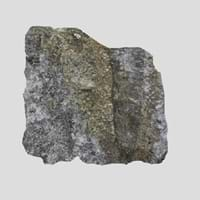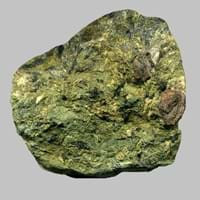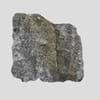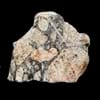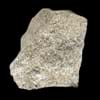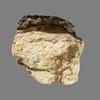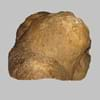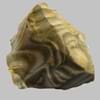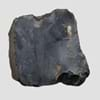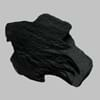Marl and Greenschist
Definition
Definition
Marl is an unconsolidated sedimentary rock consisting of clay and lime
Greenschist is a metamorphic rock that is formed under lowest temperatures and pressures and is usually produced by regional metamorphism
History
Discoverer
Unknown
Unknown
Etymology
From Old French marle, from Late Latin marglia
From minerals such as chlorite, serpentine, and epidote, and platy minerals such as muscovite and platy serpentine which are green in color
Class
Sedimentary Rocks
Metamorphic Rocks
Sub-Class
Durable Rock, Soft Rock
Durable Rock, Medium Hardness Rock
Family
Group
Not Applicable
Not Applicable
Other Categories
Fine Grained Rock, Opaque Rock
Coarse Grained Rock, Fine Grained Rock, Medium Grained Rock, Opaque Rock
Texture
Texture
Earthy
Foliated, Platy
Color
Beige, Brown, Green, Grey, White
Dark Greenish - Grey, Green
Maintenance
Less
Less
Durability
Durable
Durable
Water Resistant
Yes
Yes
Scratch Resistant
No
Yes
Stain Resistant
No
No
Wind Resistant
No
No
Acid Resistant
No
No
Appearance
Rough and Dull
Layered and Shiny
Uses
Architecture
Interior Uses
Decorative Aggregates, Floor Tiles
Bathrooms, Countertops, Decorative Aggregates, Entryways, Homes, Interior Decoration
Exterior Uses
As Building Stone, Roof Tiles
As Building Stone, As Facing Stone, Paving Stone, Garden Decoration, Office Buildings
Other Architectural Uses
Curbing
Curbing
Industry
Construction Industry
Cement Manufacture, Construction Aggregate, for Road Aggregate, Making natural cement, Raw material for the manufacture of mortar
As Dimension Stone, Building houses or walls, Cement Manufacture, Cutting Tool, for Road Aggregate, Roadstone
Medical Industry
Not Yet Used
Not Yet Used
Antiquity Uses
Artifacts, Jewellery, Sculpture, Small Figurines
Artifacts
Other Uses
Commercial Uses
Creating Artwork, Soil Conditioner
Blackboards, Manufacture of tools, Writing Slates
Types
Types
Clay Marl ,Blue Marl, Red Marl, High Bank Marl, Shell Layer Marl, Under Shell Layer Marl, Sand Marl, Green Marl, Grey Marl and Clayey Marl
Not Available
Features
Generally rough to touch, Is one of the oldest rock, Splintery, Very fine grained rock
Easily splits into thin plates, Smooth to touch
Archaeological Significance
Monuments
Not Yet Used
Not Yet Used
Famous Monuments
Not Applicable
Not Applicable
Sculpture
Used
Not Yet Used
Famous Sculptures
Data Not Available
Not Applicable
Pictographs
Used
Used
Petroglyphs
Used
Used
Figurines
Used
Not Yet Used
Fossils
Present
Absent
Formation
Formation
Marl forms when very fine-grained clay particles are deposited in water which settles at the bottom of water bodies and are compacted by overlying sediment; the water squeezes out and hence forming Marl rock.
Greenschist is medium grade metamorphic rock, formed by the metamorphosis of mudstone or shale, or some types of igneous rock, when it is subjected to higher temperatures and pressures.
Composition
Mineral Content
Calcite, Clay, Dolomite, Gypsum, Micas, Pyrite, Quartz
Alusite, Amphibole, Biotite, Chlorite, Epidote, Feldspar, Garnet, Graphite, Hornblade, Kyanite, Micas, Muscovite or Illite, Porphyroblasts, Quartz, Serpentine, Sillimanite, Staurolite, Talc
Compound Content
Aluminium Oxide, NaCl, CaO, Iron(III) Oxide, Silicon Dioxide
CaO, Carbon Dioxide, MgO
Transformation
Metamorphism
No
No
Types of Metamorphism
Not Applicable
Not Applicable
Weathering
Yes
Yes
Types of Weathering
Biological Weathering, Chemical Weathering
Biological Weathering, Chemical Weathering
Erosion
Yes
Yes
Types of Erosion
Chemical Erosion, Coastal Erosion, Water Erosion, Wind Erosion
Chemical Erosion, Coastal Erosion, Glacier Erosion, Sea Erosion
Properties
Physical Properties
Hardness
2-3
3.5-4
Grain Size
Very fine-grained
Medium to Fine Coarse Grained
Fracture
Conchoidal
Conchoidal
Streak
White
White
Porosity
Highly Porous
Highly Porous
Luster
Dull
Shiny
Cleavage
Not Available
Slaty
Toughness
2.6
1.5
Specific Gravity
2.2-2.8
2.5-2.9
Transparency
Opaque
Opaque
Density
2.4-2.8 g/cm3
2.8-2.9 g/cm3
Thermal Properties
Resistance
Heat Resistant, Impact Resistant
Impact Resistant, Pressure Resistant, Water Resistant
Reserves
Deposits in Eastern Continents
Asia
India, Pakistan, Russia
Afghanistan, Bangladesh, Bhutan, China, India, Japan, Kazakhstan, Malaysia, Pakistan, Russia, Thailand, Turkey, Vietnam
Africa
Ethiopia, Kenya, Morocco, South Africa
Egypt, Ethiopia, Morocco, Nigeria, South Africa
Europe
Austria, France, Germany, Greece, Italy, Romania, Scotland, Spain, Switzerland
Austria, England, France, Georgia, Germany, Italy, Liechtenstein, Monaco, Norway, Slovenia, Spain, Sweden, Switzerland
Others
Not Yet Found
Not Yet Found
Deposits in Western Continents
North America
USA
Canada, Costa Rica, Cuba, Mexico, Panama, USA
South America
Colombia, Ecuador, Peru
Brazil, Colombia, Guyana
Deposits in Oceania Continent
Australia
New South Wales, Victoria, Western Australia
New South Wales, New Zealand, Queensland
All about Marl and Greenschist Properties
Know all about Marl and Greenschist properties here. All properties of rocks are important as they define the type of rock and its application. Marl belongs to Sedimentary Rocks while Greenschist belongs to Metamorphic Rocks.Texture of Marl is Earthy whereas that of Greenschist is Foliated, Platy. Marl appears Rough and Dull and Greenschist appears Layered and Shiny. The luster of Marl is dull while that of Greenschist is shiny. Marl is available in beige, brown, green, grey, white colors whereas Greenschist is available in dark greenish - grey, green colors. The commercial uses of Marl are creating artwork, soil conditioner and that of Greenschist are blackboards, manufacture of tools, writing slates.
|
||
|
||
|
